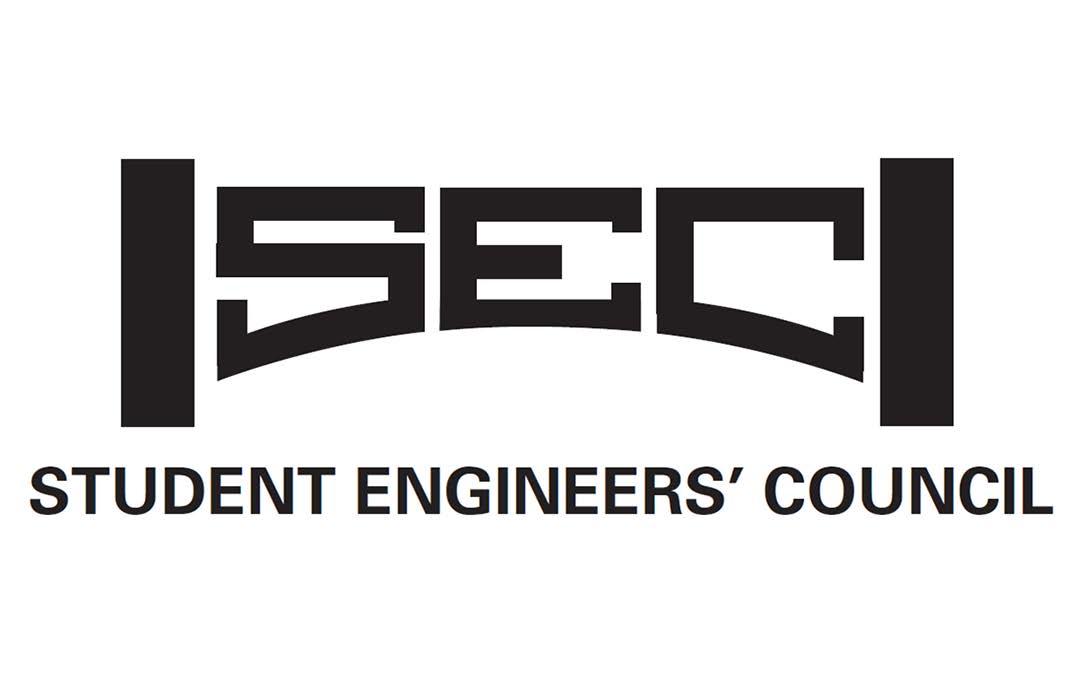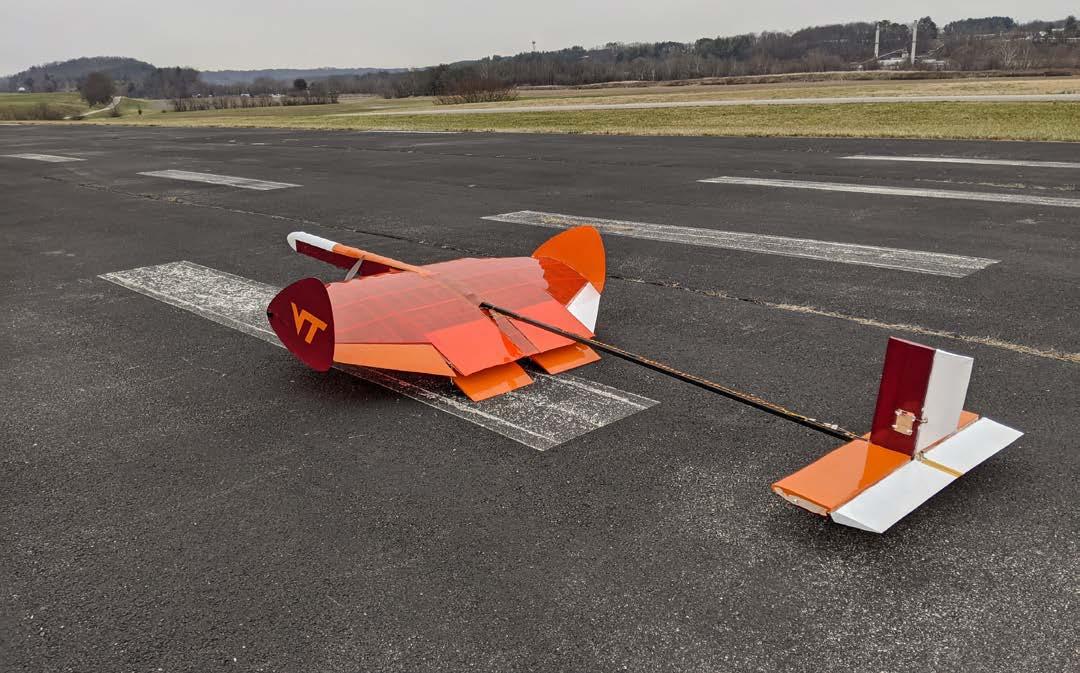
5 minute read
COVID-19 Research
Artistic Representation of the COVID-19 virus.
Photo / fda.gov
Advertisement
Article / Soumya Khanna
The COVID-19 pandemic has infected more than 18 million people around the world to date. Virginia Tech researchers in the College of Engineering have developed unique ways of fighting against the coronavirus. In this article, featured researchers have developed a surface coating that inactivates the SARS-CoV-2, devised an ultrasensitive biosensing method that could dramatically shorten the amount of time required to verify the presence of the COVID-19 virus in a sample, and helped develop drugs for treating respiratory diseases including COVID-19.
Research #1
Dr. William Ducker, a Chemical Engineering professor, has developed a surface coating that, when painted on common objects, inactivates SARS-CoV-2, the virus that causes COVID-19. Dr. Ducker is concerned when people touch solids during the pandemic as they can contract the coronavirus. “It would be great if we could put a coating on daily-use items, and the coating would inactivate the virus. Even though the virus would be on the items, it would drastically decrease the chances of getting infected. It would help relax people who visit stores, gas stations, etc. and stores wouldn’t have to wipe down things as frequently,” explains Dr. Ducker.
Dr. Ducker is an experienced surface chemist and has been studying interactions with the surface for the past 25 years. At the beginning of the pandemic, Dr. Ducker realized the need for this project due to everyone’s fear of touching everyday objects. It took a couple of months to implement the project, and their research article was published in the scientific journal, ACS Applied Materials & Interfaces.
The team of researchers that worked on this project were from diverse backgrounds. Two graduate students, Mohsen Hosseini and Saeed Behzadinasab from the chemical engineering department worked with Dr.
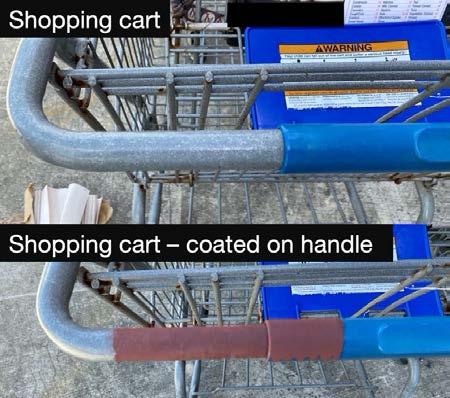

Dr. William Ducker. Photo / Ryan Young
Ducker on this project. Professor Leo Poon at the University of Hong Kong tested the project with his postdoctoral student Alex Shin. Amidst the pandemic, the team was able to get help from people in and out of Virginia Tech. A few individuals Dr. Ducker mentioned were Dr. Xu Feng from the Chemistry department who performed the surface analysis for their film, Dr. Stephen McCartney who conducted the electron microscopy at Nanoscale Characterization and Fabrication Laboratory (NCFL), and his son Matthew Ducker who carried out the statistical analysis.
Within a day of requesting to be considered emergency personnel, Dr. Ducker and Dr. Feng received their approval. “I bought things from local stores and hardware stores as it was not practical to wait for weeks due to the supply-chain problems,” Dr. Ducker recalls. The coating takes a maximum of 60 minutes. The tests for shorter periods are ongoing.
The future of this project is to make it faster and better. Dr. Ducker is looking for funding and for students interested in working on this project. You can reach out to Dr. Ducker at wducker@vt.edu. It is important to note that researchers are not wrestling with the coronavirus in the lab!
Research #2
Electrical and Computer Engineering assistant professor Dr. Wei Zhou and Mechanical Engineering associate professor Dr. Jiangtao Cheng have developed an ultrasensitive biosensing method that could dramatically shorten the amount of time required to verify the presence of the COVID-19 virus in a sample.
The multidisciplinary collaboration between Dr. Zhou and Dr. Cheng started back in 2018. Initially, they aimed to combine their expertise in droplet evaporation and nano-antenna technology for the application of biosensing. After two years of tremendous effort, the research was published in ACS Nano in June. “After the outbreak of COVID-19, we thought it was a good opportunity for us to dig deeper into this research and find new avenues related to COVID-19,” recalls Dr. Cheng.
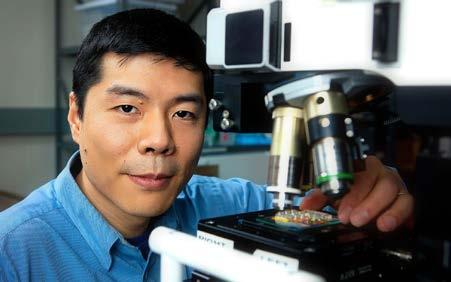
Dr. Wei Zhou. Photo / David Franusich
“An exciting discovery was the rapid detection of diluted biomolecules and micromolecules in the droplet environment caused by the Leidenfrost evaporation process. The combination of scientific phenomena and research efforts helped us achieve recognition,” says Dr. Wei. The team of researchers working on this project are three Electrical and Computer Engineering graduate students Junyeob Song, Meitong Nie, and Wonil Nam, and two Mechanical Engineering graduate students Weifeng Cheng and Xukun He. “The students played a key role in making this project happen,” says
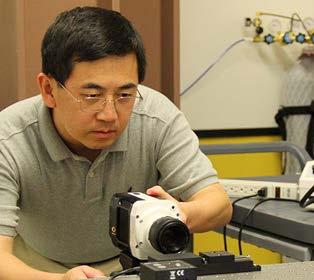
Dr. Jiangtao Cheng. Photo / Aref Vandadi
Dr. Wei. Weifeng Cheng, one of Dr. Cheng’s graduate students and co-author of this research, came up with the idea to utilize the Leidenfrost evaporation process and integrate it with the nanoantenna technology in the project. The students engineered and utilized a partial-Leidenfrost evaporation process by controlling the heating process.
Dr. Cheng elaborates on the wide application spectrum for this project and how they are talking about prospective application directions. The team is considering collaborating with other colleges and disciplines to further their research in biomolecules and testing in different environments. If you are interested in working on this project, you can reach out to Dr. Zhou (wzh@ vt.edu) and Dr. Cheng (chengjt@vt.edu).
“dramatically shorten the amount of time required to verify the presence of the COVID-19 virus in a sample” - Dr. Zhou, Dr. Cheng
Research #3
Student researcher Spencer Mendola is a rising senior majoring in ACS-Chemistry at the University of Mary Washington. Over the summer, Mendola worked with Dr. Achenie in the Virginia Tech Chemical Engineering department. Mendola’s research project was to help develop drugs for treating respiratory diseases, including COVID-19. He developed a program that can predict the physical, chemical, biological, and toxicological properties of respiratory drugs. It also identifies which parts of the drug molecules are most important in predicting those properties accurately. One example of a chemical property is the solubility in water. Mendola trained the computer to recognize the similarities between all respiratory drugs. He hopes to use this model to discover and predict the properties new drugs. Many new drugs have not been studied in the lab, and his program helps to know the properties of these drugs.
WHO DO YOU ASPIRE TO BE?
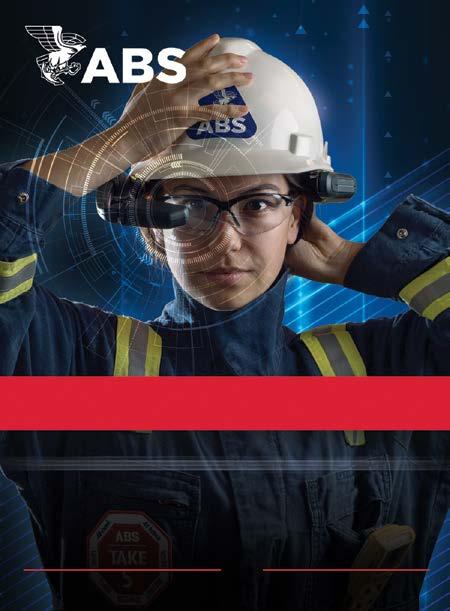




Make a Difference. Change the World.
Hiring engineering students for internship and rotational program opportunities
DISCOVER YOUR FUTURE AT www.abscareers.org
SAFETY LEADERSHIP
IN THE MARINE INDUSTRY



